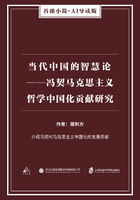The subject of this Essay is not the so-called Liberty of the Will, so unfortunately opposed to the misnamed doctrine of Philosophical Necessity; but Civil, or Social Liberty: the nature and limits of the power which can be legitimately exercised by society over the individual. A question seldom stated, and hardly ever discussed, in general terms, but which profoundly influences the practical controversies of the age by its latent presence, and is likely soon to make itself recognised as the vital question of the future. It is so far from being new, that in a certain sense, it has divided mankind, almost from the remotest ages; but in the stage of progress into which the more civilised portions of the species have now entered, it presents itself under new conditions, and requires a different and more fundamental treatment.
The struggle between Liberty and Authority is the most conspicuous feature in the portions of history with which we are earliest familiar, particularly in that of Greece, Rome, and England. But in old times this contest was between subjects, or some classes of subjects, and the government. By liberty, was meant protection against the tyranny of the political rulers. The rulers were conceived (except in some of the popular governments of Greece) as in a necessarily antagonistic position to the people whom they ruled. They consisted of a governing One, or a governing tribe or caste, who derived their authority from inheritance or conquest, who, at all events, did not hold it at the pleasure of the governed, and whose supremacy men did not venture, perhaps did not desire, to contest, whatever precautions might be taken against its oppressive exercise. Their power was regarded as necessary, but also as highly dangerous; as a weapon which they would attempt to use against their subjects, no less than against external enemies. To prevent the weaker members of the community from being preyed upon by innumerable vultures, it was needful that there should be an animal of prey stronger than the rest, commissioned to keep them down. But as the king of the vultures would be no less bent upon preying on the flock than any of the minor harpies, it was indispensable to be in a perpetual attitude of defence against his beak and claws. The aim, therefore, of patriots, was to set limits to the power which the ruler should be suffered to exercise over the community; and this limitation was what they meant by liberty. It was attempted in two ways. First, by obtaining a recognition of certain immunities, called political liberties or rights, which it was to be regarded as a breach of duty in the ruler to infringe, and which if he did infringe, specific resistance, or general rebellion, was held to be justifiable. A second, and generally a later expedient, was the establishment of constitutional checks; by which the consent of the community, or of a body of some sort, supposed to represent its interests, was made a necessary condition to some of the more important acts of the governing power. To the first of these modes of limitation, the ruling power, in most European countries, was compelled, more or less, to submit. It was not so with the second; and to attain this, or when already in some degree possessed, to attain it more completely, became everywhere the principal object of the lovers of liberty. And so long as mankind were content to combat one enemy by another, and to be ruled by a master, on condition of being guaranteed more or less efficaciously against his tyranny, they did not carry their aspirations beyond this point.
A time, however, came, in the progress of human affairs, when men ceased to think it a necessity of nature that their governors should be an independent power, opposed in interest to themselves. It appeared to them much better that the various magistrates of the State should be their tenants or delegates, revocable at their pleasure. In that way alone, it seemed, could they have complete security that the powers of government would never be abused to their disadvantage. By degrees, this new demand for elective and temporary rulers became the prominent object of the exertions of the popular party, wherever any such party existed; and superseded, to a considerable extent, the previous efforts to limit the power of rulers. As the struggle proceeded for making the ruling power emanate from the periodical choice of the ruled, some persons began to think that too much importance had been attached to the limitation of the power itself. That (it might seem) was a resource against rulers whose interests were habitually opposed to those of the people. What was now wanted was, that the rulers should be identified with the people; that their interest and will should be the interest and will of the nation. The nation did not need to be protected against its own will. There was no fear of its tyrannising over itself. Let the rulers be effectually responsible to it, promptly removable by it, and it could afford to trust them with power of which it could itself dictate the use to be made. Their power was but the nation's own power, concentrated, and in a form convenient for exercise. This mode of thought, or rather perhaps of feeling, was common among the last generation of European liberalism, in the Continental section of which it still apparently predominates. Those who admit any limit to what a government may do, except in the case of such governments as they think ought not to exist, stand out as brilliant exceptions among the political thinkers of the Continent. A similar tone of sentiment might by this time have been prevalent in our own country, if the circumstances which for a time encouraged it, had continued unaltered.
But, in political and philosophical theories, as well as in persons, success discloses faults and infirmities which failure might have concealed from observation. The notion, that the people have no need to limit their power over themselves, might seem axiomatic, when popular government was a thing only dreamed about, or read of as having existed at some distant period of the past. Neither was that notion necessarily disturbed by such temporary aberrations as those of the French Revolution, the worst of which were the work of a usurping few, and which, in any case, belonged, not to the permanent working of popular institutions, but to a sudden and convulsive outbreak against monarchical and aristocratic despotism. In time, however, a democratic republic came to occupy a large portion of the earth's surface, and made itself felt as one of the most powerful members of the community of nations; and elective and responsible government became subject to the observations and criticisms which wait upon a great existing fact. It was now perceived that such phrases as "self-government," and "the power of the people over themselves," do not express the true state of the case. The "people" who exercise the power are not always the same people with those over whom it is exercised; and the "self-government" spoken of is not the government of each by himself, but of each by all the rest. The will of the people, moreover, practically means, the will of the most numerous or the most active part of the people; the majority, or those who succeed in making themselves accepted as the majority: the people, consequently, may desire to oppress a part of their number; and precautions are as much needed against this, as against any other abuse of power. The limitation, therefore, of the power of government over individuals, loses none of its importance when the holders of power are regularly accountable to the community, that is, to the strongest party therein. This view of things, recommending itself equally to the intelligence of thinkers and to the inclination of those important classes in European society to whose real or supposed interests democracy is adverse, has had no difficulty in establishing itself; and in political speculations "the tyranny of the majority" is now generally included among the evils against which society requires to be on its guard.
Like other tyrannies, the tyranny of the majority was at first, and is still vulgarly, held in dread, chiefly as operating through the acts of the public authorities. But reflecting persons perceived that when society is itself the tyrant—society collectively, over the separate individuals who compose it—its means of tyrannising are not restricted to the acts which it may do by the hands of its political functionaries. Society can and does execute its own mandates: and if it issues wrong mandates instead of right, or any mandates at all in things with which it ought not to meddle, it practises a social tyranny more formidable than many kinds of political oppression, since, though not usually upheld by such extreme penalties, it leaves fewer means of escape, penetrating much more deeply into the details of life, and enslaving the soul itself. Protection, therefore, against the tyranny of the magistrate is not enough: there needs protection also against the tyranny of the prevailing opinion and feeling; against the tendency of society to impose, by other means than civil penalties, its own ideas and practices as rules of conduct on those who dissent from them; to fetter the development, and, if possible, prevent the formation, of any individuality not in harmony with its ways, and compel all characters to fashion themselves upon the model of its own. There is a limit to the legitimate interference of collective opinion with individual independence: and to find that limit, and maintain it against encroachment, is as indispensable to a good condition of human affairs, as protection against political despotism.
But though this proposition is not likely to be contested in general terms, the practical question, where to place the limit—how to make the fitting adjustment between individual independence and social control—is a subject on which nearly everything remains to be done. All that makes existence valuable to any one, depends on the enforcement of restraints upon the actions of other people. Some rules of conduct, therefore, must be imposed, by law in the first place, and by opinion on many things which are not fit subjects for the operation of law. What these rules should be, is the principal question in human affairs; but if we except a few of the most obvious cases, it is one of those which least progress has been made in resolving. No two ages, and scarcely any two countries, have decided it alike; and the decision of one age or country is a wonder to another. Yet the people of any given age and country no more suspect any difficulty in it, than if it were a subject on which mankind had always been agreed. The rules which obtain among themselves appear to them self-evident and self-justifying. This all but universal illusion is one of the examples of the magical influence of custom, which is not only, as the proverb says, a second nature, but is continually mistaken for the first. The effect of custom, in preventing any misgiving respecting the rules of conduct which mankind impose on one another, is all the more complete because the subject is one on which it is not generally considered necessary that reasons should be given, either by one person to others, or by each to himself. People are accustomed to believe, and have been encouraged in the belief by some who aspire to the character of philosophers, that their feelings, on subjects of this nature, are better than reasons, and render reasons unnecessary. The practical principle which guides them to their opinions on the regulation of human conduct, is the feeling in each person's mind that everybody should be required to act as he, and those with whom he sympathises, would like them to act. No one, indeed, acknowledges to himself that his standard of judgment is his own liking; but an opinion on a point of conduct, not supported by reasons, can only count as one person's preference; and if the reasons, when given, are a mere appeal to a similar preference felt by other people, it is still only many people's liking instead of one. To an ordinary man, however, his own preference, thus supported, is not only a perfectly satisfactory reason, but the only one he generally has for any of his notions of morality, taste, or propriety, which are not expressly written in his religious creed; and his chief guide in the interpretation even of that. Men's opinions, accordingly, on what is laudable or blamable, are affected by all the multifarious causes which influence their wishes in regard to the conduct of others, and which are as numerous as those which determine their wishes on any other subject. Sometimes their reason—at other times their prejudices or superstitions: often their social affections, not seldom their anti-social ones, their envy or jealousy, their arrogance or contemptuousness: but most commonly, their desires or fears for themselves—their legitimate or illegitimate self-interest. Wherever there is an ascendant class, a large portion of the morality of the country emanates from its class interests, and its feelings of class superiority. The morality between Spartans and Helots, between planters and negroes, between princes and subjects, between nobles and roturiers, between men and women, has been for the most part the creation of these class interests and feelings: and the sentiments thus generated, react in turn upon the moral feelings of the members of the ascendant class, in their relations among themselves. Where, on the other hand, a class, formerly ascendant, has lost its ascendancy, or where its ascendancy is unpopular, the prevailing moral sentiments frequently bear the impress of an impatient dislike of superiority. Another grand determining principle of the rules of conduct, both in act and forbearance, which have been enforced by law or opinion, has been the servility of mankind towards the supposed preferences or aversions of their temporal masters, or of their gods. This servility, though essentially selfish, is not hypocrisy; it gives rise to perfectly genuine sentiments of abhorrence; it made men burn magicians and heretics. Among so many baser influences, the general and obvious interests of society have of course had a share, and a large one, in the direction of the moral sentiments: less, however, as a matter of reason, and on their own account, than as a consequence of the sympathies and antipathies which grew out of them: and sympathies and antipathies which had little or nothing to do with the interests of society, have made themselves felt in the establishment of moralities with quite as great force.
The likings and dislikings of society, or of some powerful portion of it, are thus the main thing which has practically determined the rules laid down for general observance, under the penalties of law or opinion. And in general, those who have been in advance of society in thought and feeling have left this condition of things unassailed in principle, however they may have come into conflict with it in some of its details. They have occupied themselves rather in inquiring what things society ought to like or dislike, than in questioning whether its likings or dislikings should be a law to individuals. They preferred endeavouring to alter the feelings of mankind on the particular points on which they were themselves heretical, rather than make common cause in defence of freedom, with heretics generally. The only case in which the higher ground has been taken on principle and maintained with consistency, by any but an individual here and there, is that of religious belief: a case instructive in many ways, and not least so as forming a most striking instance of the fallibility of what is called the moral sense: for the odium theologicum, in a sincere bigot, is one of the most unequivocal cases of moral feeling. Those who first broke the yoke of what called itself the Universal Church, were in general as little willing to permit difference of religious opinion as that church itself. But when the heat of the conflict was over, without giving a complete victory to any party, and each church or sect was reduced to limit its hopes to retaining possession of the ground it already occupied; minorities, seeing that they had no chance of becoming majorities, were under the necessity of pleading to those whom they could not convert, for permission to differ. It is accordingly on this battle-field, almost solely, that the rights of the individual against society have been asserted on broad grounds of principle, and the claim of society to exercise authority over dissentients, openly controverted. The great writers to whom the world owes what religious liberty it possesses, have mostly asserted freedom of conscience as an indefeasible right, and denied absolutely that a human being is accountable to others for his religious belief. Yet so natural to mankind is intolerance in whatever they really care about, that religious freedom has hardly anywhere been practically realised, except where religious indifference, which dislikes to have its peace disturbed by theological quarrels, has added its weight to the scale. In the minds of almost all religious persons, even in the most tolerant countries, the duty of toleration is admitted with tacit reserves. One person will bear with dissent in matters of church government, but not of dogma; another can tolerate everybody, short of a Papist or a Unitarian; another, every one who believes in revealed religion; a few extend their charity a little further, but stop at the belief in a God and in a future state. Wherever the sentiment of the majority is still genuine and intense, it is found to have abated little of its claim to be obeyed.
In England, from the peculiar circumstances of our political history, though the yoke of opinion is perhaps heavier, that of law is lighter, than in most other countries of Europe; and there is considerable jealousy of direct interference, by the legislative or the executive power, with private conduct; not so much from any just regard for the independence of the individual, as from the still subsisting habit of looking on the government as representing an opposite interest to the public. The majority have not yet learnt to feel the power of the government their power, or its opinions their opinions. When they do so, individual liberty will probably be as much exposed to invasion from the government, as it already is from public opinion. But, as yet, there is a considerable amount of feeling ready to be called forth against any attempt of the law to control individuals in things in which they have not hitherto been accustomed to be controlled by it; and this with very little discrimination as to whether the matter is, or is not, within the legitimate sphere of legal control; insomuch that the feeling, highly salutary on the whole, is perhaps quite as often misplaced as well grounded in the particular instances of its application. There is, in fact, no recognised principle by which the propriety or impropriety of government interference is customarily tested. People decide according to their personal preferences. Some, whenever they see any good to be done, or evil to be remedied, would willingly instigate the government to undertake the business; while others prefer to bear almost any amount of social evil, rather than add one to the departments of human interests amenable to governmental control. And men range themselves on one or the other side in any particular case, according to this general direction of their sentiments; or according to the degree of interest which they feel in the particular thing which it is proposed that the government should do, or according to the belief they entertain that the government would, or would not, do it in the manner they prefer; but very rarely on account of any opinion to which they consistently adhere, as to what things are fit to be done by a government. And it seems to me that in consequence of this absence of rule or principle, one side is at present as often wrong as the other; the interference of government is, with about equal frequency, improperly invoked and improperly condemned.
The object of this Essay is to assert one very simple principle, as entitled to govern absolutely the dealings of society with the individual in the way of compulsion and control, whether the means used be physical force in the form of legal penalties, or the moral coercion of public opinion. That principle is, that the sole end for which mankind are warranted, individually or collectively, in interfering with the liberty of action of any of their number, is self-protection. That the only purpose for which power can be rightfully exercised over any member of a civilised community, against his will, is to prevent harm to others. His own good, either physical or moral, is not a sufficient warrant. He cannot rightfully be compelled to do or forbear because it will be better for him to do so, because it will make him happier, because, in the opinions of others, to do so would be wise, or even right. These are good reasons for remonstrating with him, or reasoning with him, or persuading him, or entreating him, but not for compelling him, or visiting him with any evil in case he do otherwise. To justify that, the conduct from which it is desired to deter him must be calculated to produce evil to some one else. The only part of the conduct of any one, for which he is amenable to society, is that which concerns others. In the part which merely concerns himself, his independence is, of right, absolute. Over himself, over his own body and mind, the individual is sovereign.
It is, perhaps, hardly necessary to say that this doctrine is meant to apply only to human beings in the maturity of their faculties. We are not speaking of children, or of young persons below the age which the law may fix as that of manhood or womanhood. Those who are still in a state to require being taken care of by others, must be protected against their own actions as well as against external injury. For the same reason, we may leave out of consideration those backward states of society in which the race itself may be considered as in its nonage. The early difficulties in the way of spontaneous progress are so great, that there is seldom any choice of means for overcoming them; and a ruler full of the spirit of improvement is warranted in the use of any expedients that will attain an end, perhaps otherwise unattainable. Despotism is a legitimate mode of government in dealing with barbarians, provided the end be their improvement, and the means justified by actually effecting that end. Liberty, as a principle, has no application to any state of things anterior to the time when mankind have become capable of being improved by free and equal discussion. Until then, there is nothing for them but implicit obedience to an Akbar or a Charlemagne, if they are so fortunate as to find one. But as soon as mankind have attained the capacity of being guided to their own improvement by conviction or persuasion (a period long since reached in all nations with whom we need here concern ourselves), compulsion, either in the direct form or in that of pains and penalties for non-compliance, is no longer admissible as a means to their own good, and justifiable only for the security of others.
It is proper to state that I forego any advantage which could be derived to my argument from the idea of abstract right, as a thing independent of utility. I regard utility as the ultimate appeal on all ethical questions; but it must be utility in the largest sense, grounded on the permanent interests of man as a progressive being. Those interests, I contend, authorise the subjection of individual spontaneity to external control, only in respect to those actions of each, which concern the interest of other people. If any one does an act hurtful to others, there is a prima facie case for punishing him, by law, or, where legal penalties are not safely applicable, by general disapprobation. There are also many positive acts for the benefit of others, which he may rightfully be compelled to perform; such as, to give evidence in a court of justice; to bear his fair share in the common defence, or in any other joint work necessary to the interest of the society of which he enjoys the protection; and to perform certain acts of individual beneficence, such as saving a fellow-creature's life, or interposing to protect the defenceless against ill-usage, things which whenever it is obviously a man's duty to do, he may rightfully be made responsible to society for not doing. A person may cause evil to others not only by his actions but by his inaction, and in either case he is justly accountable to them for the injury. The latter case, it is true, requires a much more cautious exercise of compulsion than the former. To make any one answerable for doing evil to others, is the rule; to make him answerable for not preventing evil, is, comparatively speaking, the exception. Yet there are many cases clear enough and grave enough to justify that exception. In all things which regard the external relations of the individual, he is de jure amenable to those whose interests are concerned, and if need be, to society as their protector. There are often good reasons for not holding him to the responsibility; but these reasons must arise from the special expediencies of the case: either because it is a kind of case in which he is on the whole likely to act better, when left to his own discretion, than when controlled in any way in which society have it in their power to control him; or because the attempt to exercise control would produce other evils, greater than those which it would prevent. When such reasons as these preclude the enforcement of responsibility, the conscience of the agent himself should step into the vacant judgment seat, and protect those interests of others which have no external protection; judging himself all the more rigidly, because the case does not admit of his being made accountable to the judgment of his fellow-creatures.
But there is a sphere of action in which society, as distinguished from the individual, has, if any, only an indirect interest; comprehending all that portion of a person's life and conduct which affects only himself, or if it also affects others, only with their free, voluntary, and undeceived consent and participation. When I say only himself, I mean directly, and in the first instance: for whatever affects himself, may affect others through himself; and the objection which may be grounded on this contingency, will receive consideration in the sequel. This, then, is the appropriate region of human liberty. It comprises, first, the inward domain of consciousness; demanding liberty of conscience, in the most comprehensive sense; liberty of thought and feeling; absolute freedom of opinion and sentiment on all subjects, practical or speculative, scientific, moral, or theological. The liberty of expressing and publishing opinions may seem to fall under a different principle, since it belongs to that part of the conduct of an individual which concerns other people; but, being almost of as much importance as the liberty of thought itself, and resting in great part on the same reasons, is practically inseparable from it. Secondly, the principle requires liberty of tastes and pursuits; of framing the plan of our life to suit our own character; of doing as we like, subject to such consequences as may follow: without impediment from our fellow-creatures, so long as what we do does not harm them, even though they should think our conduct foolish, perverse, or wrong. Thirdly, from this liberty of each individual, follows the liberty, within the same limits, of combination among individuals; freedom to unite, for any purpose not involving harm to others: the persons combining being supposed to be of full age, and not forced or deceived.
No society in which these liberties are not, on the whole, respected, is free, whatever may be its form of government; and none is completely free in which they do not exist absolute and unqualified. The only freedom which deserves the name, is that of pursuing our own good in our own way, so long as we do not attempt to deprive others of theirs, or impede their efforts to obtain it. Each is the proper guardian of his own health, whether bodily, or mental and spiritual. Mankind are greater gainers by suffering each other to live as seems good to themselves, than by compelling each to live as seems good to the rest.
Though this doctrine is anything but new, and, to some persons, may have the air of a truism, there is no doctrine which stands more directly opposed to the general tendency of existing opinion and practice. Society has expended fully as much effort in the attempt (according to its lights) to compel people to conform to its notions of personal, as of social excellence. The ancient commonwealths thought themselves entitled to practise, and the ancient philosophers countenanced, the regulation of every part of private conduct by public authority, on the ground that the State had a deep interest in the whole bodily and mental discipline of every one of its citizens; a mode of thinking which may have been admissible in small republics surrounded by powerful enemies, in constant peril of being subverted by foreign attack or internal commotion, and to which even a short interval of relaxed energy and self-command might so easily be fatal, that they could not afford to wait for the salutary permanent effects of freedom. In the modern world, the greater size of political communities, and above all, the separation between spiritual and temporal authority (which placed the direction of men's consciences in other hands than those which controlled their worldly affairs), prevented so great an interference by law in the details of private life; but the engines of moral repression have been wielded more strenuously against divergence from the reigning opinion in self-regarding, than even in social matters; religion, the most powerful of the elements which have entered into the formation of moral feeling, having almost always been governed either by the ambition of a hierarchy, seeking control over every department of human conduct, or by the spirit of Puritanism. And some of those modern reformers who have placed themselves in strongest opposition to the religions of the past, have been noway behind either churches or sects in their assertion of the right of spiritual domination: M. Comte, in particular, whose social system, as unfolded in his Traité de Politique Positive, aims at establishing (though by moral more than by legal appliances) a despotism of society over the individual, surpassing anything contemplated in the political ideal of the most rigid disciplinarian among the ancient philosophers.
Apart from the peculiar tenets of individual thinkers, there is also in the world at large an increasing inclination to stretch unduly the powers of society over the individual, both by the force of opinion and even by that of legislation: and as the tendency of all the changes taking place in the world is to strengthen society, and diminish the power of the individual, this encroachment is not one of the evils which tend spontaneously to disappear, but, on the contrary, to grow more and more formidable. The disposition of mankind, whether as rulers or as fellow-citizens to impose their own opinions and inclinations as a rule of conduct on others, is so energetically supported by some of the best and by some of the worst feelings incident to human nature, that it is hardly ever kept under restraint by anything but want of power; and as the power is not declining, but growing, unless a strong barrier of moral conviction can be raised against the mischief, we must expect, in the present circumstances of the world, to see it increase.
It will be convenient for the argument, if, instead of at once entering upon the general thesis, we confine ourselves in the first instance to a single branch of it, on which the principle here stated is, if not fully, yet to a certain point, recognised by the current opinions. This one branch is the Liberty of Thought: from which it is impossible to separate the cognate liberty of speaking and of writing. Although these liberties, to some considerable amount, form part of the political morality of all countries which profess religious toleration and free institutions, the grounds, both philosophical and practical, on which they rest, are perhaps not so familiar to the general mind, nor so thoroughly appreciated by many even of the leaders of opinion, as might have been expected. Those grounds, when rightly understood, are of much wider application than to only one division of the subject, and a thorough consideration of this part of the question will be found the best introduction to the remainder. Those to whom nothing which I am about to say will be new, may therefore, I hope, excuse me, if on a subject which for now three centuries has been so often discussed, I venture on one discussion more.















